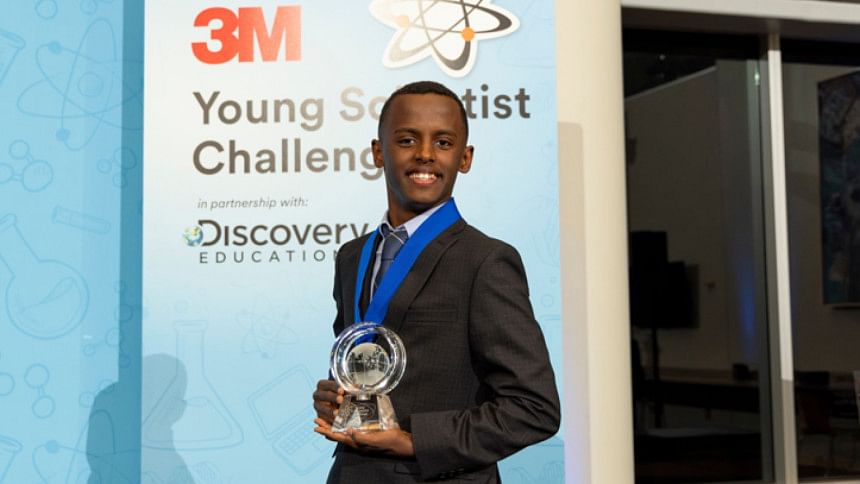14-year-old awarded for inventing soap that may cure skin cancer

A groundbreaking invention by a 14-year-old student in the United States has earned him the title of "America's top young scientist." Heman Bekele, a ninth-grader hailing from Annandale, Virginia, has developed a unique bar of soap with the potential to aid in the treatment of melanoma. This type of skin cancer is diagnosed in approximately 100,000 individuals in the United States annually and is responsible for nearly 8,000 deaths each year.
The Guardian reported that Bekele was chosen for this prestigious award over nine other talented finalists. His innovative creation, aptly named "skin cancer treating soap," is formulated with ingredients believed to rejuvenate dendritic cells. These cells play a crucial role in defending human skin, and their activation may enable them to effectively battle cancerous cells. In a video submission for the 3M Young Scientist Challenge, Bekele expressed his firm belief that "young minds can make a positive impact on the world."
The young scientist's motivation to tackle this issue has deep roots in his early life in Ethiopia. Witnessing individuals constantly working under the intense sun, Bekele felt compelled to develop a solution that was both scientifically advanced and widely accessible.
While skin cancer is prevalent, melanoma specifically accounts for a mere 1% of cases. However, its severity cannot be understated, as it leads to the majority of skin cancer-related deaths, according to the American Cancer Society. The organisation also highlighted that melanoma rates have seen a significant uptick in recent years, especially among women over the age of 50. Furthermore, the incidence of melanoma is over 20 times higher in white individuals compared to black individuals. On a brighter note, advancements in treatments have led to a decline in melanoma death rates over the past ten years.
Upon accepting the award, Bekele conveyed his aspirations for his invention to the judging panel. He envisions the soap as a "symbol of hope, accessibility, and a world where skin cancer treatment is within everyone's reach."

 For all latest news, follow The Daily Star's Google News channel.
For all latest news, follow The Daily Star's Google News channel. 



Comments